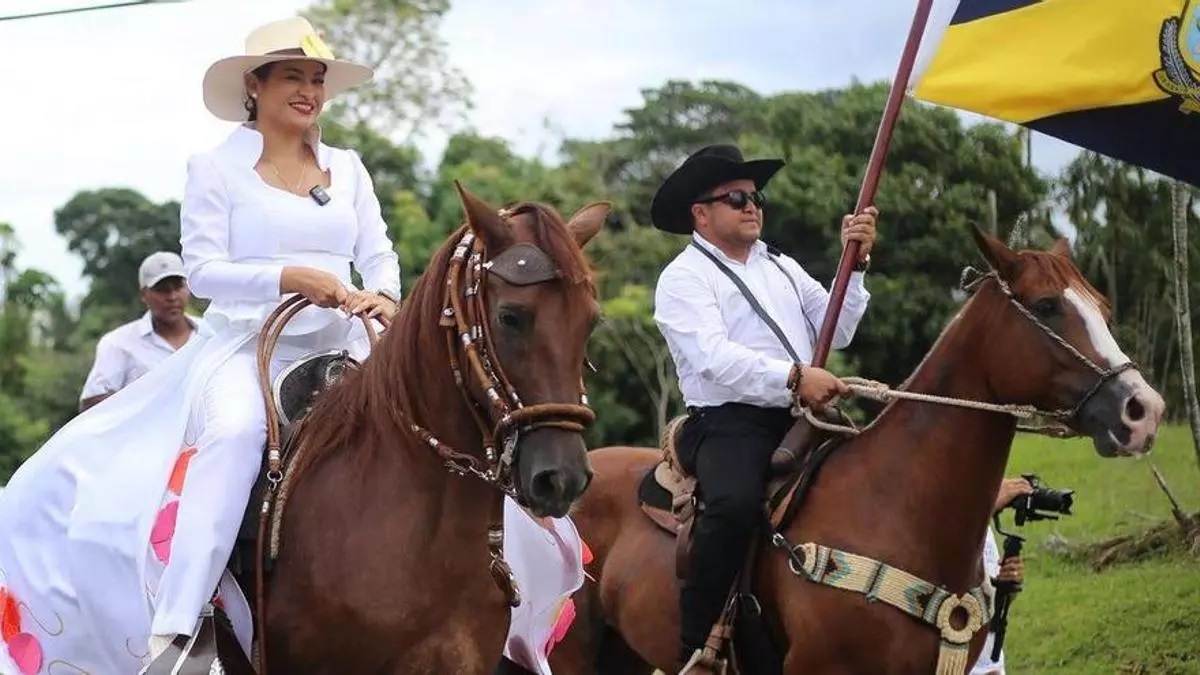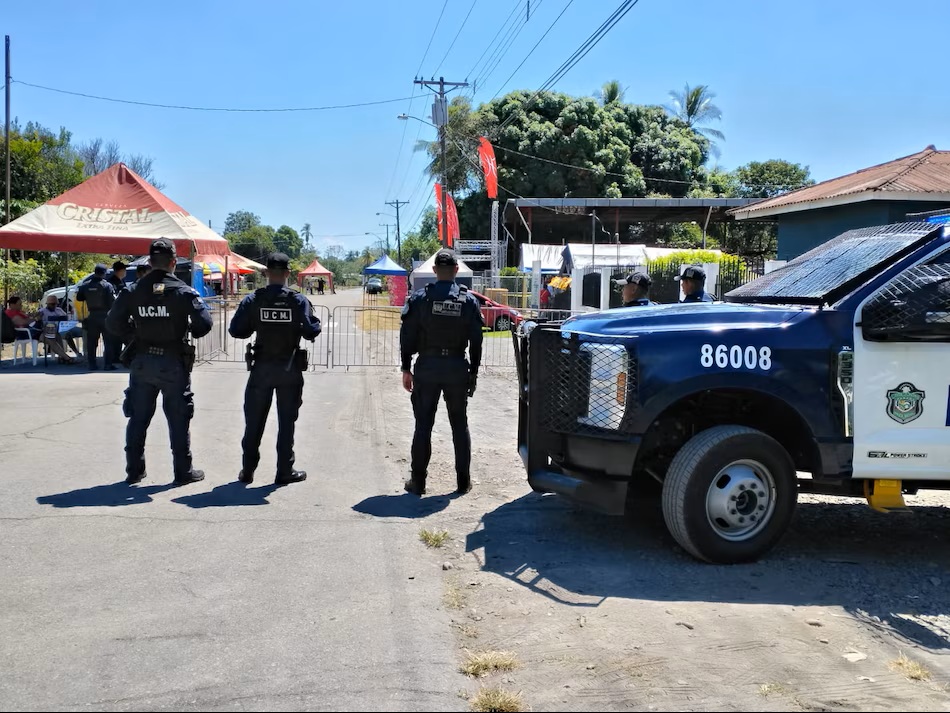District of Arraiján, Headed by Mayor Stefany Peñalba, in Constant Conflicts with Crime and Corruption

Just like the central government, local governments also have 100 days in which they have been able to determine what the shortcomings and needs of each place are in order to begin developing plans that will lead each ruler to fulfill his or her promises, but the beginning of the management of many has been involved in controversy. In most cases, these have had to do with financial issues: the payment of benefits, lottery tickets and overdue vacations; as well as the non-payment of employer-employee contributions to the Social Security Fund or the lack of clear reports on the status of accounts of communal councils and municipalities. One of the communities that has had the most conflicts at the beginning of this new five-year period is the district of Arraiján, headed by Stefany Peñalba pictured above, who has had to face claims from former officials demanding payment of their overdue fortnightly pay, allegations of double salaries and increased representation expenses, as well as community needs.
Only fifteen days after taking office, Peñalba announced the dismissal of 150 collaborators, who, according to the mayor, ‘ were determined to have no functions ‘. According to what she said at the time, these people went to the community meetings in shorts and flip-flops, but did not have a specific function. These statements by Peñalba were not taken well by the officials who claimed not to be ‘ bottles ‘(a derogatory term in Panama), and demanded that they be paid the accumulated fortnightly wages. Since then, the mayor has been engaged in a battle with the former officials that have continued to this day. During that period, there were accusations from both sides, and even the City Council became a coliseum in which elected officials and citizens faced each other. On July 18, during the Council session, Mayor Peñalba was involved in a painful exchange of words with the representative of Vista Alegre, Luz Denia Oliver, when dismissed former officials (supported by Oliver) were protesting in a room in the building; they were demanding payment of their labor benefits, as well as a public apology from the head of the community for calling them the derogatory Panama term, translated into English as ‘bottles’.
Amid the tensions generated, Peñalba claimed that the position assumed by the representative was due to the fact that her husband had also been dismissed, which provoked the complaint of Oliver who asked the mayor to mention her husband’s name; in addition, he called her ‘disrespectful’ by banging on the table. The protests of the former officials continued. On September 3, tempers flared again in the Municipal Council and, in the midst of the confusing situation, the alleged assault on Vice Mayor Oliver Ríos was reported. Peñalba, on the social network X, accused the representatives of Santa Clara and Cerro Silvestre of orchestrating an attack on the administration where the Vice Mayor was “a victim of violence.” “They use the figure of courtesy in the room to generate violence. We always support dialogue,” he posted on the social network. The mayor later said there was no money to pay these people their salaries and benefits. Although three months have passed and representation expenses have increased, the former officials are still waiting for their debts to be paid. Protests in the vicinity of the Arraiján City Hall have become a habit over the past three months, and now it would not be the former workers who would arrive at the site to protest.
Instead, there was a group of citizens upset by the change of the parade route due to the founding of the district. It was on September 10th, when these residents would arrive to demand that the historic route of the September 12th parade be maintained and not be held in Vista Alegre as arranged by the Mayor’s Office. Faced with these claims, the decision was justified, indicating that it was a recommendation made by the Land Transit and Transportation Authority (ATTT) and the Ministry of Education (Meduca) due to the construction of the subway. Finally, the activity was held on September 15 in Vacamonte. Just days after taking office, Peñalba not only had to deal with the claims of the dismissed officials, but also with allegations that she was receiving a double salary, one as mayor and another as legal advisor in the National Assembly. Once again, on social media X, she posted a statement in which she stated that, during the campaign period, she took three months of vacation and after winning the elections on May 5, she requested an unpaid leave from July 1, 2024, for the 5 years that he will be in charge of the Arraiján community. However, Peñalba was accused of allegedly committing crimes of corruption of public duties, embezzlement, abuse of authority, violation of public servants, overstepping of functions, omission of duties by public officials and influence peddling, for allegedly receiving double salary both in the municipality and in the National Assembly.
Despite the statements made by the mayor herself that there was no budget to pay benefits to former officials, on September 12 it became known about the approved increase in representation expenses for councilors and herself. The increase came into effect just one month after taking office, that is, on August 1, but it became known on September 11 when the information was published in Official Gazette No. 301126-A. In response to this, and as usual, Peñalba spoke out on social media X stating: “We will not spend $37,500 per month. Our Treasury will only pay the representation expenses of the Representatives of Districts when the MEF or the Comptroller’s Office authorizes it, given that the Nominating Authority of said officials is the Central Government and not the Municipalities.” One of the biggest problems that Peñalba has faced at the community level is the drinking water crisis in the district, which worsened with the contamination of the distribution pipes in the 7 de Septiembre neighborhoods with hydrocarbons, which left the population without water for more than 22 days. The elected official was very aware of this situation and used her social media to alert people of what was happening. She also distributed bottles of water to those affected. But the lack of drinking water service is widespread in this rapidly growing district, and the hope is that the new water treatment plant being built by the National Water and Sewer Institute will come into operation. One of the strategies that the Mayor’s Office of Arraiján has implemented is the enabling of the ‘Citizen DNA’ platform, where people can report situations that affect them such as problems with water, vegetation control, public lighting, road conditions, citizen initiatives, special permits, animal welfare, risk areas, insecurity reports and job exchanges. In the case of complaints, users must provide their personal data, address, contact details, and add an image of the situation.





